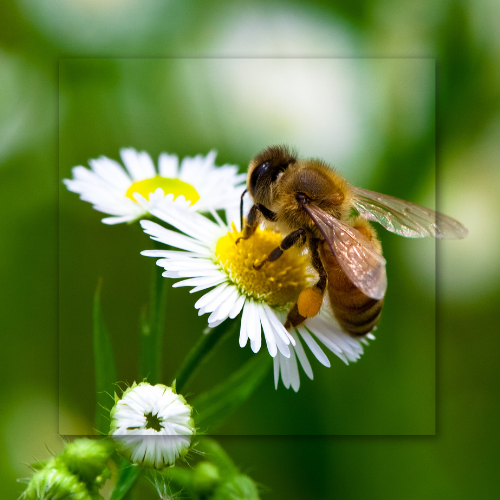
Stinging Insect Removal And Control
At Grade A Critter, we've seen it all, from sprawling hornet nests in attics to yellow jackets making a home in your outdoor furniture. And in each situation, the one thing that's clear is: each species poses its own set of challenges and hazards. So, let's delve into some of the stinging insects you might encounter around your North Atlanta home.
Common Stingers In North Atlanta
- Yellow Jackets are among the most common stinging insects in North Atlanta. Unlike their calm cousins the wasps, yellow jackets can be downright aggressive, often stinging without much reason. A barbecue or picnic can turn into a disaster quickly if yellow jackets decide to join the party. Even worse, their nests can house thousands, and they are notoriously difficult to remove. Imagine your child or pet inadvertently stepping on a nest hidden in the ground or a bush; the consequences could be serious, causing multiple painful stings that might even require medical attention.
- Hornets are another formidable adversary. Larger than yellow jackets, they are also highly protective of their nests. Notoriously difficult to handle, hornets are known for their painful stings that can cause swelling, redness, and in some unfortunate cases, allergic reactions. These large insects tend to build nests high up in trees or along the eaves of houses, making them hard to reach without specialized equipment. Attempting to remove a hornet's nest without proper care can lead to severe repercussions for the unprepared homeowner.
- Paper wasps may look less intimidating, but don't be fooled. Though they are generally less aggressive than yellow jackets and hornets, they still defend their nests vigorously. These nests are often built in locations that bring them into direct conflict with humans, like along windows, door frames, or outdoor furniture. A sting from a paper wasp can cause significant pain and discomfort, making your outdoor space a place of dread rather than relaxation.
Complications And Long-Term Problems
Besides the immediate threat of painful stings and allergic reactions, these pests can cause long-term issues. For instance, both yellow jackets and hornets are known to chew through wooden structures, causing structural damage over time. Wasps can build nests that block vents or other essential home functions. Ignoring these issues is not an option; the problems only worsen with time and can lead to costly home repairs.
You may think a can of insecticide from your local hardware store is all you need, but DIY solutions often fall short. For starters, it's challenging to correctly identify the type of pest you're dealing with, which is crucial for effective treatment. Using the wrong chemicals can actually make the problem worse, causing the insects to scatter and build new nests. Additionally, without professional training, you could place yourself at significant risk. Mishandling a nest removal can result in hundreds of angry insects swarming you, leading to multiple stings and a possible trip to the emergency room.
Little Known Facts And Statistics
While you may not want these stinging insects around, it's fascinating to consider some lesser-known facts. Did you know that some species of wasps can actually recognize individual human faces? Or that hornets can fly up to 15 miles per hour? According to the Centers for Disease Control and Prevention (CDC), insects like bees, hornets, and wasps account for an astonishing 72 deaths per year in the United States alone.
With years of experience in the North Atlanta area, Grade A Critter understands the specific challenges posed by these nuisances. Our technicians are trained in the latest removal techniques and equipped with the necessary safety gear to handle the job effectively. Don't let your summer be ruined by stinging insects. Contact us today for a consultation and take the first step in reclaiming your peaceful home environment.
Frequently Asked Questions
Q1: Can stinging insects like yellow jackets and hornets become more aggressive during certain seasons?
A1: You might notice an uptick in aggressiveness from yellow jackets and hornets during the late summer and early fall. This behavior change is often due to the fact that their colonies have reached peak sizes and they're foraging for food more actively to sustain the larger population. This makes them more protective of their territory and more likely to sting.
Q2: I've heard that some wasps can lay eggs inside other insects. Is that true?
A2: Yes, it's true, and it's as unsettling as it sounds. Some types of parasitic wasps lay their eggs inside caterpillars or other insects. When the eggs hatch, the larvae feed on the host insect from the inside out. It's a bit like a science fiction movie, but it's part of the ecological balance. These parasitic wasps can actually help control the population of other pests, although you still wouldn't want them nesting near your home.
Q3: I found a nest, but it looks abandoned. Is it safe to remove it myself?
A3:While it might be tempting to remove what appears to be an abandoned nest, it's often not as empty as you might think. In some cases, the nest might still contain larvae or pupae that are about to hatch, turning your small problem into a much bigger one. Even if the nest truly is empty, old nests can attract new colonies of the same or different species. For these reasons, it's always best to consult with professionals like Grade A Critter for nest removal to ensure it's done safely and effectively.
Grade A Critter
